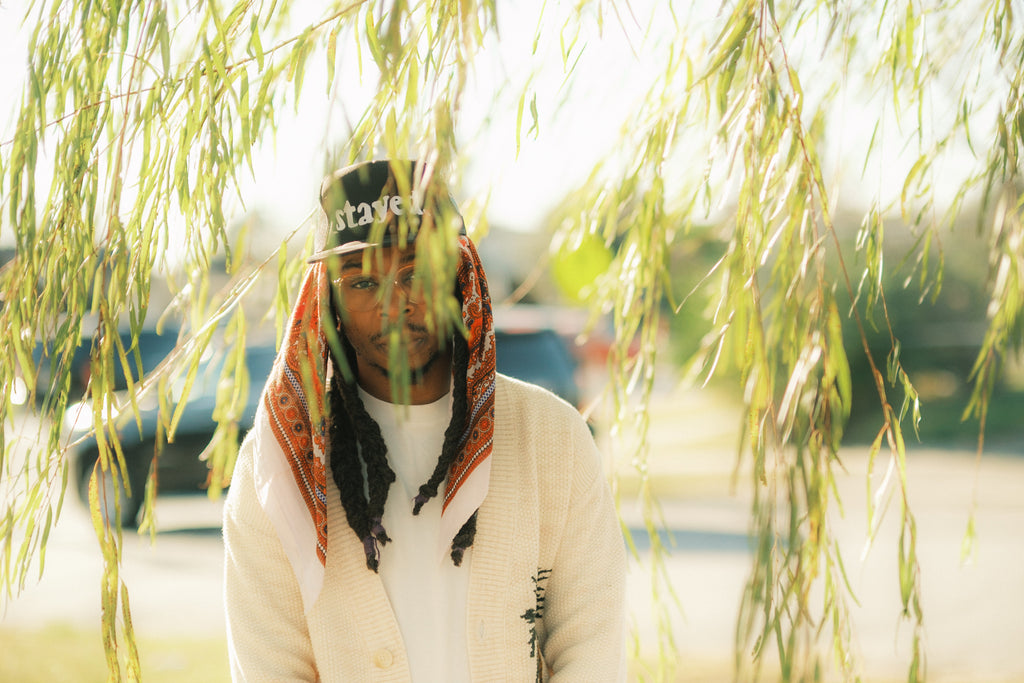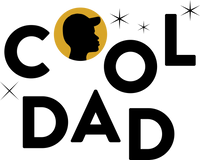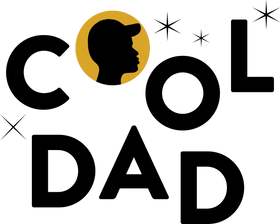Meet Houston DJ and Producer Ichikara Valdez
By Elizabeth Lepro

Ichikara Valdez, a.k.a “The I.V.,” remembers being fascinated early on by scratch records coming out in the ‘90s from turntablists like Cali’s Invisibl Skratch Piklz.

Valdez immediately went out and got a trapper-keeper style binder — the classic, thick variety with wavy fabric on the front — to recreate the sound. “It was just me trying to emulate the stuff that I heard and also trying to create something new,” he said. That’s what he’s been doing ever since.
Brought up in Houston, Valdez says the key to his music is exposure. His dad was a T.V. producer in the late ‘70s and ‘80s, and also involved with Rap-A-Lot Records. Valdez spent time digging through his dad’s records and tagging along to video shoots. With friends from “freakin’ everywhere,” he said, he fell in love with Miami bass while also tuning in to the east coast and the midwest. “And,” he added, “there was always the church.”
 In his teens, Valdez moved on to making beats. Eight years ago, he linked up with Joel Martinez, a.k.a Joey Flaco, to form Killem Collective. As the DJ for the hip-hop dance company Soul Street Dance, Valdez has finally had the chance to take his music out into the world. Ahead of his CoolxFriday mix release, we caught up with the Houston DJ, producer, and father of three to talk about his evolution in music, connecting with his kids, and the power of the Houston scene.
In his teens, Valdez moved on to making beats. Eight years ago, he linked up with Joel Martinez, a.k.a Joey Flaco, to form Killem Collective. As the DJ for the hip-hop dance company Soul Street Dance, Valdez has finally had the chance to take his music out into the world. Ahead of his CoolxFriday mix release, we caught up with the Houston DJ, producer, and father of three to talk about his evolution in music, connecting with his kids, and the power of the Houston scene.
Can you remember the first time you tried making your own music?
I think the thing that really kicked me off was when I got my first computer program, which was Fruity Loops, like, 1, and it was a demo version. Now it’s FL Studio — everybody and their mama uses it — but this was probably in ‘99. The first thing I remember doing that made me go, ‘OK I might be able to do this’ was when I recreated Roger Troutman’s ’Computer Love’ on this little archaic-ass computer program.
How did your music interests evolve from there?

I just so happened to be working as a waiter right when I got back to Houston from Hampton University [VA], where I went in 2004/2005. I had already been creating songs and producing with my god brother Bishop Black, of Blaze and Black. I jumped into the waiter industry and ended up meeting my first Muslim Brother, because I became a Muslim in 2007, and he introduced me to these cats, this group called The Niyat. They brought me in and kind of nurtured me — I’m 19 or 20 years old, and my first beats, I’m really making for them. I got my first MPC also, around 2007, so I dropped using computer programs, and started going straight analog, and went back almost with the essence of drum machines and basically just sampling records — real dusty, rugged stuff, but with the sound that I wanted.
What are the origins of the Killem Collective?
So [The Niyat] guys are how I started to get my chops up. Around the same time, I met a predominant b-boy here, Joey Flaco [Joel Martinez] who is part of a group called Havikoro. They’re legendary b-boys, like internationally known, but they’re all from Houston.
 I find out [Joey] is just getting off a tour with Questlove and The Roots; they were their backup dancers for that tour. Long story short, we ended up bonding. He really believed in the music I was making and I ended up working at his store Suckerpunch. And we just started making music together. I introduced him to The Niyat and he started producing with them as well. I was really a beat maker at that time and was starting to produce and dabble but hadn’t really gotten serious. We formed around 2014 officially as an LLC, and it was me, Joel, and two other business partners Sergio Silvera and Chris Cantu, who was a creative out of California.
I find out [Joey] is just getting off a tour with Questlove and The Roots; they were their backup dancers for that tour. Long story short, we ended up bonding. He really believed in the music I was making and I ended up working at his store Suckerpunch. And we just started making music together. I introduced him to The Niyat and he started producing with them as well. I was really a beat maker at that time and was starting to produce and dabble but hadn’t really gotten serious. We formed around 2014 officially as an LLC, and it was me, Joel, and two other business partners Sergio Silvera and Chris Cantu, who was a creative out of California.
Killem really started out with [the rapper] Doeman and Joel’s cousin, Tony Badd, who’s a guitarist and vocalist here in Houston. So Killem formed off of us wanting to put out our own music and our friends’ music.
What is it about Houston that makes all this possible?
When it comes down to the arts and music, we’re literally informed by every stretch of the world. It’s not like sitting in the middle of the U.S. and you’re by happenstance falling upon things. There are transactions artistically being made here all the time. Houston isn’t necessarily an art-centric city in terms of investing in the arts the way that some other major cities do, but the communities are very entrenched in the arts. So you can come, for instance, to the Third Ward and it’s surrounded with music and visual artists, all types — especially when you have schools like HSPVA [Kinder High School for the Performing Arts] where your Robert Glaspers and Bryan-Michael Coxs come out of and end up changing music everywhere.
 I had a dope-ass conversation with someone this week about New York hip hop and the golden era and the fact that it wouldn’t even exist had it not been for DJ Premier and being from Houston! It’s culturally impactful when it leaves here. On so many different levels.
I had a dope-ass conversation with someone this week about New York hip hop and the golden era and the fact that it wouldn’t even exist had it not been for DJ Premier and being from Houston! It’s culturally impactful when it leaves here. On so many different levels.
Let’s get to dad stuff. How many kids do you have and what are their names?
I have three — Azrael, 10, Yssandra 14, and Analise, 18.
What is the top underrated — but totally necessary — dad skill?
Communication with your children. Looking back on how I was raised, you find yourself saying old man stuff: “back in my day.” You gotta realize, it’s not your day anymore! Yes the circumstances may carry over but the actual context is completely different from what it was. I feel like that’s what’s kept my bond with my children so tight is I meet them where they are when we’re talking. I’m not trying to talk over them or inform them of many sensibilities outside of the time that we’re actually in.
Yes, interacting with your children, going out and doing things with them is great, but if you all aren’t relating to one another because your communication is off, it’s because you don’t actually respect them as people — not even little people, but people, growing beings that are trying to learn how to navigate the world the same way as you are.

And, just being able to talk to my kids about anime! And music and art.
Right. How does music play into your relationship with your kids?
My significant other is Mexican — her family is from Michoacán and so my oldest was born here in Second Ward in Houston, which is a majority Latino community. It was interesting because her sensibilities came from a multitude of places, so she listens to everything, from old school ranchero music to all the current things that are going on, even down to golden-era hip hop and certain rock. She has a really eclectic taste. So with our conversations it’s really easy to connect on multiple levels, because the more you stretch out to the music, the more you stretch out into the world as well.
With my youngest daughter, by the time she got to about 10, she was already on to Travis Scott and Tyler the Creator, but also she might listen to some super cheesy K Pop or freakin’ Michael McDonald. I have heard everybody on her phone — like, “Careless Whisper” is one of her favorite songs? I’m like ‘What’s going on?’
What’s the vibe of your CoolxFridays mix?
I always favor doing live mixes. I think that’s the musician in me more than anything. I was either at a brunch or I was at a residency here in Houston in the Spring/Summer at the Marriott Marquis. The dope thing about a lot of times now, especially as I’m getting older, is that I really get to go places and play what I want to play. I don’t take a lot of corporate gigs.
 Checkout the mix - Here
Checkout the mix - Here
So the mix for CoolxDad is really me in my essence and I just hit record. The nights where people get to come into my world with me as I’m having a good time, you can feel that essence come through the music.
Awesome. You have traveled a lot as a DJ with the dance group Soul Street. Leave us with a memorable travel story, or your favorite destination so far.
It’s a place close to my heart — it’s Malta.
 It was beautiful because this is the first time for some reason I was on top of it and ended up linking up with anybody on the island that did anything hip-hop wise. It was also my first time traveling with my turntables and TSA ended up doing a check. We get to our first gig and I pop open my case and my turntables are broken. Yo. So I’m panicking and someone’s like “hit Facebook.” Within an hour, people I didn’t even know rolled up with a turntable for me to use for our first set and let me borrow turntables for the rest of the tour that we were there.
It was beautiful because this is the first time for some reason I was on top of it and ended up linking up with anybody on the island that did anything hip-hop wise. It was also my first time traveling with my turntables and TSA ended up doing a check. We get to our first gig and I pop open my case and my turntables are broken. Yo. So I’m panicking and someone’s like “hit Facebook.” Within an hour, people I didn’t even know rolled up with a turntable for me to use for our first set and let me borrow turntables for the rest of the tour that we were there.
That’s when I knew hip hop was real. This culture is beyond what a lot of people even think in terms of the community and in terms of the availability of resources when you need them. And it’s just through music that we’re connecting. That affected me so heavily because it was like I had a community in a place I’d never been.
Written by Elizabeth Lepro
Photography by Fred Agho

